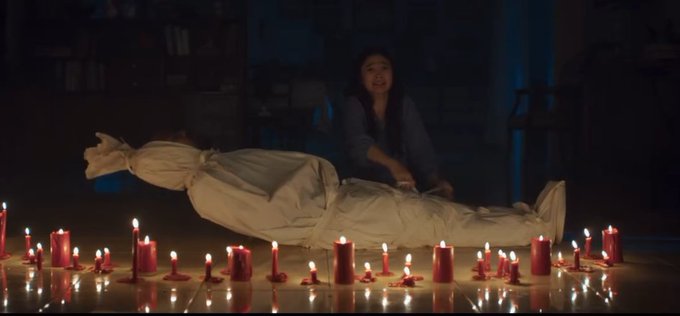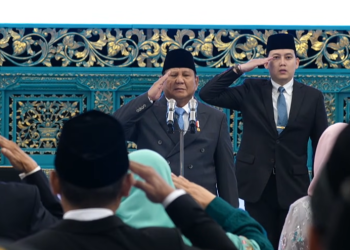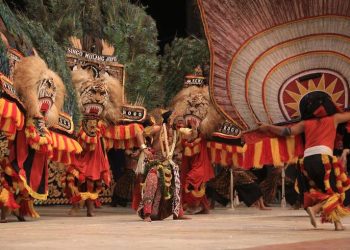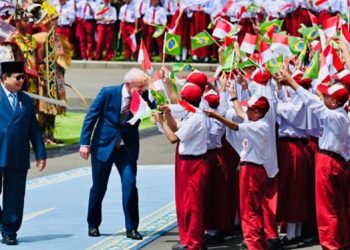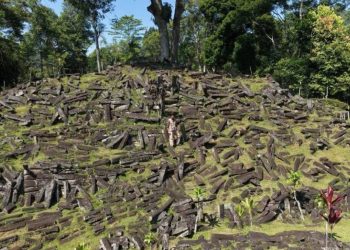Jakarta, Indonesia Sentinel — The Sumpah Pocong, or Pocong Oath, is a controversial ritual deeply rooted in Indonesia’s traditional beliefs, particularly on the island of Java. This practice is primarily carried out to prove one’s innocence in the face of serious accusations by swearing before God.
The symbolism of the pocong—a body tightly wrapped in a burial shroud—reinforces the gravity of the ritual. In Indonesian Islamic burial traditions, the pocong represents the finality of death, making this oath one of the most sacred and fearsome forms of swearing. The ritual is based on the belief that any false oath will result in divine punishment, including misfortune, illness, or even death.
While still practiced in some regions, the Pocong Oath remains a subject of debate from both religious and legal perspectives. Many Islamic scholars, representing the majority religion in Indonesia, oppose the ritual, arguing that it is inconsistent with Islamic teachings and verges on shirk—the sin of associating others with God.
Legally, the Pocong Oath holds no official standing in Indonesia’s judicial system and cannot be used as evidence in court. However, in informal local disputes, the ritual is still considered a viable means of resolving conflicts.
Origins and Practice of the Pocong Oath
According to Indonesia’s Islamic organizations Muhammadiyah, the Pocong Oath is a cultural tradition rather than a religious mandate. The oath typically involves the accused being wrapped in a white burial shroud, symbolizing a corpse prepared for Islamic burial.
In some variations, the participant is not fully wrapped but merely covered with the shroud while seated. Despite differences in execution, the core belief remains consistent: if the person swearing the oath is lying, divine punishment will inevitably follow.
Stages of the Pocong Oath
The pocong oath require several stages and steps.
- Preparation: The ritual typically takes place in sacred spaces, such cemeteries. Essential items include a white burial shroud (kain kafan) and ritual cords. A respected religious leader or community figure usually oversees the proceedings.
- Wrapping: The individual taking the oath is bathed in a ritual similar to the washing of a corpse. They are then wrapped tightly in a burial shroud, with knots tied around the head, chest, waist, knees, and feet.
- Oath Declaration: The leader recites prayers while the individual delivers their oath aloud, proclaiming their innocence and inviting divine punishment if they are lying.
- Post-Ritual: In some traditions, the participant must bathe again as a symbolic act of purification. A period of communal observation often follows, during which unusual events or misfortunes are interpreted as signs of divine judgment.
Consequences of the Pocong Oath
In traditional Indonesian belief, breaking a Pocong Oath carries severe and often terrifying consequences. Many believe that those who swear falsely will face divine retribution, with the most extreme consequence being sudden or unnatural death.
The Origins of the Mante Tribe, Recent Research Reveals!
Although the oath lacks formal recognition in Indonesian law, there have been cases where judges in rural or tradition-bound regions have considered it as a decisive factor in resolving disputes. In extreme scenarios, individuals accused of making false statements under the Pocong Oath could face legal repercussions, including charges of perjury.
Despite ongoing controversy, the Pocong Oath remains a significant part of Indonesia’s cultural landscape, reflecting the country’s rich blend of tradition, spirituality, and social justice practices.
(Raidi/Agung)


